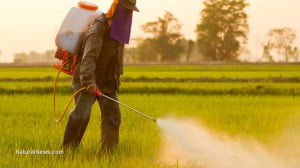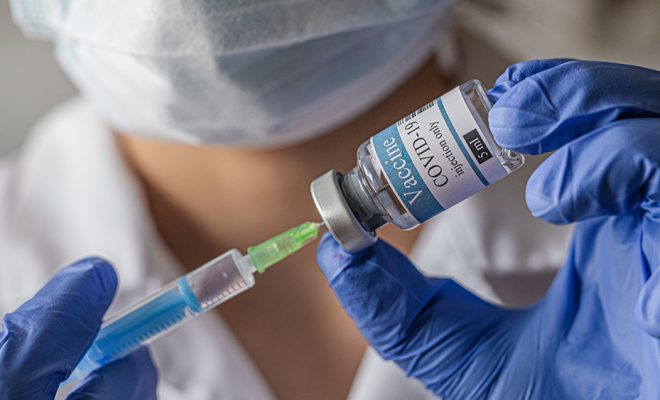Why You Can Never Trust the Pesticide Industry’s Own Safety Tests

Pesticide companies rigorously test their products before turning them loose on the public, right? Because if not, wouldn’t they stand a grand chance of being wiped out by a mass class-action suit if their products turned out to really be harmful?
Not really, it turns out.
As reported by the group GMWatch, which serves as an information clearing house for genetic modification technology, the honorary president of the Italy-based Ramazzini Institute, Morando Soffritti, explained in a recent interview why animal safety tests performed there on controversial chemical substances in the foods we eat and the environment are tougher than those conducted by industry-backed researchers.
GMWatch further noted:
The Institute’s team of researchers recently published a study showing a link between the consumption of sucralose and cancer, sparking a backlash from the industry. Tate & Lyle, which manufactures a sucralose product, stated that “the study results are not supported by previous studies. Sucralose has been extensively researched with more than 110 studies conducted over a 20-year period demonstrating its safety.”
However, in a subsequent interview with Food Navigator, Soffritti said that there are variances between Ramazzini studies and industry studies that could lead to different results.
The Institute’s methodology is much more complete
The Institute chief said that, when compared to studies conducted by the food industry for regulatory purposes, Ramazzini studies:
— don’t kill animals two-thirds of the way through their lives. In fact, animals are permitted to live longer, and in the case of a study on sucralose, the entire duration of their normal lifespan. That is done in order to get information about the last one-third of their lives, when most long-latency cancers generally appear. [GMWatch added that scientists don’t euthanize humans two-thirds of the way through their lives, either, so the Ramazzini methodology really is the only way to see the effects of chemicals in old age].
— use a larger dose range that includes two low doses so that researchers can assess dose-response relationships as well as the effects of real-life exposures.
— use a greater number of animals per sex and test dosage, so that researchers can minimize the likelihood of “false negatives,” as when a toxic effect exists but is overlooked due to the number of animals being too low. False negatives can, of course, put at risk the public’s health.
In addition, GMWatch notes, the Ramazzini Institute prefers to being dosing animals during the prenatal stage, so as to reveal any effects that chemical substances have on developing fetuses. Indeed, the Institute’s sucralose study used that methodology, in contrast to the industry studies.
In the end, the U.S.-based Center for Science in the Public Interest defended the Institute’s sucralose study as being “more powerful than the industry-funded studies,” GMWatch reported.
That said, previous studies by the Institute have been dismissed and criticized by the European Food Safety Authority, or EFSA, for not following Organization for Economic Cooperation and Development (OECD) guidelines.
Phony comparisons and lack of testing
“But adherence to OECD guidelines is not a mark of scientific excellence and was never intended to be. OECD guidelines represent a minimum standard of testing that industry studies must reach,” GMWatch reported. “They were instituted by regulators in the 1970s and 1980s in the wake of serious industry fraud in pesticide testing.”
“Industry and regulators must cease pretending that regulatory studies that are conducted to OECD guidelines – and that follow what some scientists have condemned as ‘outdated’ methodologies – are by definition superior to studies performed by independent researchers,” the GMO-focused website concluded. “The latter may have methodologies that reflect up-to-date scientific knowledge and are more sensitive.”
In January 2015, Natural News reported that the U.S. Department of Agriculture refused to conduct studies and testing on foods for glyphosate, the main ingredient in the herbicide Roundup, manufactured by Monsanto.
“The American food supply is teeming with deadly pesticides. But the U.S. Department of Agriculture (USDA), headed by former Monsanto lawyer Tom Vilsack, says people shouldn’t worry because pesticides are completely safe to eat,” we reported.
Sources:
GMWatch.org
MPWHI.com[PDF]
FoodNavigator.com
TruthWiki.org
Science.NaturalNews.com








